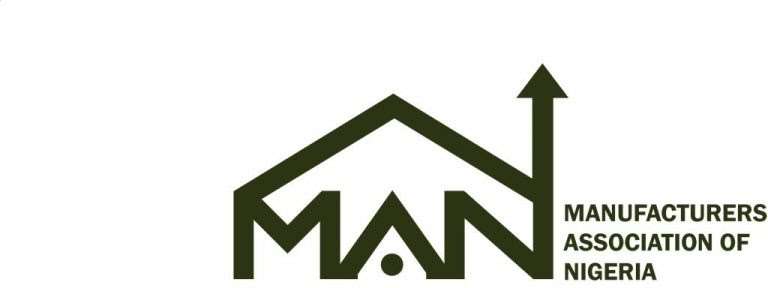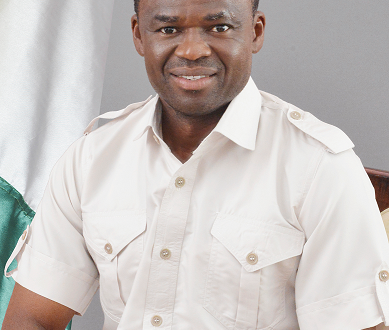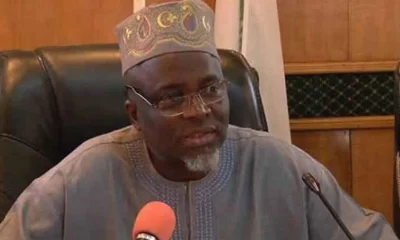Business
767 Manufacturers Shut Down In 2023, MAN Laments
Published
2 months agoon
By
Editor
The Manufacturers Association of Nigeria has said that 767 manufacturers shut down operations while 335 became distressed in 2023.
This came against the backdrop of exchange rate volatility, rising inflation and other economic challenges that have worsened the investment climate.
MAN stated this in a statement in which it condemned the recently introduced Expatriate Employment Levy by the Federal Government.
The association said it was struck with disbelief, seeing that the levy runs contrary to President Bola Tinubu’s Renewed Hope Agenda and the kernel of his Fiscal Policy and Tax Reform initiative.
READ ALSO: Forex Crisis: EFCC 7,000-man Task Force Goes After Dollar Racketeers
According to MAN, the unintended negative consequences on the manufacturing sector are humongous and cannot be accommodated at this time of evident downturn in our economy.
The statement read in part, “The imposition of EEL poses a potential impact on the manufacturing sector and the economy at large.
“This will in turn mark an unwarranted and unprecedented addition to the cost of doing business in Nigeria, especially to manufacturers. The manufacturing sector is already beset with multidimensional challenges. In the year 2023, 335 manufacturing companies became distressed and 767 shut down.”
The statement further noted that capacity utilisation in the sector has declined to 56 per cent amid rising interest rates and scarcity of forex needed to import raw materials and machinery.
READ ALSO: ICPC Interrogates CBN Officials, Others Over $3.4bn COVID-19 Loan
It added, “Inventory of unsold finished products has increased to N350bn and the real growth has dropped to 2.4 per cent.”
MAN also said it was concerned that the EEL contradicts our international trade agreements and the obligations contained therein.
It argued that Nigeria is a signatory to the African Continental Free Trade Area agreement, which seeks to promote the free movement of skilled labour across the continent, which is complemented by non-discriminatory measures against fellow Africans.
The association expressed worry that the introduction of the levy could trigger retaliatory measures against Nigerians working across Africa and other nations of the world and may also frustrate regional integration efforts and portray Nigeria as a spoiler among her peers.
READ ALSO: IG Reiterates Ban On PoS, Others In Police Stations
“We are equally worried that the imposition of such a levy could have far-reaching implications for our national economy and potentially exert pressure on our national currency could be introduced through a Handbook, rather than a law enacted by the National Assembly.”
This levy, if not reversed, might expose the Federal Government to a plethora of lawsuits that would distract Government from the task of salvaging the current dire situation of our economy,” the statement added.
In its recommendation, MAN urged the president to direct that the implementation of the Expatriate Employment Levy be discontinued.
The Expatriate Employment Levy, a new policy introduced by the Federal Government aims to address wage gaps between expatriates and the Nigerian Labor force while encouraging skills transfer and the employment of qualified Nigerians in foreign-owned companies.
READ ALSO: Cooking Gas Price Rises By 38% To N16,250
The new levy is $10,000 for staff and $15,000 for directors. This represents a significant shift from the $2,000 paid by foreign nationals for the Combined Expatriate Residence Permit and Alien Card.
According to NBS, Nigerian nationals constitute only 59 per cent of total jobs in Nigeria, their wages account for less than 45 per cent of total wages, and the average basic salary of expatriates stands at more than 45 per cent above the basic salary.
However, the introduction of the EEL has been met with strong criticism from members of Nigeria’s Organised Private Sector, who argue that the policy may negatively affect Foreign Direct Investments in the country.
In a statement signed by its Director-General, Chinyere Almona the Lagos Chamber of Commerce and Industry said it is concerned about the likely perception by foreign investors that the Nigerian government is not accommodating to foreign workers.
The chamber expressed concern that this perception would be harmful to our drive for Foreign Direct Investments inflows.
READ ALSO: Senate Summons CBN Officials Over N30tn Loans
The statement read in part, “The Expatriate Employment Levy may cause unintended consequences that may trigger the relocation of foreign companies to neighbouring countries that present a more conducive and less expensive environment for business.
“The imposition of this levy may likely spark retaliatory actions taken by other countries by imposing levies on foreigners and particularly targeting Nigerian workers. This will in turn affect diaspora remittances from Nigerian workers resident in other countries.”
In the same vein, the Centre for the Promotion of Private Enterprise, in a statement signed by its Chief Executive Officer, Muda Yusuf, criticised the new policy directive.
The Centre said that the policy could be a major setback for the continental economic integration vision.
The statement read, “There are serious implications for diaspora Nigerians. The policy may trigger reciprocal actions from other countries and this may affect Nigerians in the diaspora.
“There are currently over 17 million Nigerians in various countries around the world doing extremely well in the fields of education, medicine, health, sports, media & entertainment, leadership & politics, finance, science & ICT, transportation, tourism, industry and agribusiness.”
Business
BREAKIN: NDIC Increases Maximum Deposit Insurance Coverage
Published
4 hours agoon
May 2, 2024By
Editor
The Nigeria Deposit Insurance Corporation (NDIC) on Thursday increased the maximum deposit insurance coverage levels for Deposit Money Banks from N500,000 to N5 million.
The Managing Director of NDIC, Bello Hassan, announced this in Abuja at a press conference, stating that it takes effect immediately.
He said, “For Deposit Money Banks, the increase of the maximum deposit insurance coverage from N500,000 to N5,000,000, would provide full coverage of 98.98% of the total depositors compared with the current cover of 89.20%.
READ ALSO: [BREAKING] Coastal Highway: FG To Pay N2.75bn Compensation Today
“In terms of the value of deposit covered, the revised coverage would increase the value of deposits covered by deposit insurance to 25.37% compared with the current cover of 6.31% of total value of deposits.
“The increase of the maximum deposit insurance coverage from N200,000 to N2,000,000, would provide full coverage of 99.27% of the total depositors compared with the current level of 98.76% and would increase the value of deposits covered by deposit insurance to 34.43% compared with 14.38% of total value of deposit, currently covered.
“The increase of the maximum deposit insurance coverage from N500,000 to N2,000,000 would provide full coverage of 99.34% of the total depositors compared with the current 97.98% and would increase the value of deposits covered by deposit insurance to 21.04% compared with 10.77% of total value of deposit, currently covered.”
READ ALSO: Mother Of Four Hacked To Death By Neighbour, Son In Edo
Hassan also stated that raising the maximum deposit insurance coverage for primary mortgage banks from N500,000 to N2,000,000 would provide full coverage for 99.99% of total depositors and increase the value of deposits covered by deposit insurance to 43.10% of the total deposit value, up from the current 40.60% cover.
The Corporation has also raised the maximum pass-through deposit insurance coverage for subscribers of Mobile Money Operators from N500,000 to N5,000,000 per subscriber.

Chairman of Dangote Industries Limited, Aliko Dangote has said that the devaluation of Naira created the biggest mess for the company in 2023.
Speaking at the annual general meeting of Dangote Sugar Refinery, Dangote said this affected lots of companies in the country.
He said: “We are doing whatever it takes to make sure that at the end of the day, we will be paying dividends because if you look at our dividends last year, it was almost 50 percent more so we will try and get out of the mess.
READ ALSO: Ex-policeman Who filmed Wife Having Wex With Her Superior Found Guilty Of Stalking
“The biggest mess created was actually the devaluation of the naira from N460 to N1,400. You can see almost 97 percent of the companies, especially in food and beverages businesses, none of them will pay dividends this year for sure but, we will try and get out of it as soon as possible.
“We want to see that at the end of the day, no matter how small, we will be able to pay some dividends, especially if there is a rebound of the naira.”
Business
Customers Panic As CBN Bans Opay, Palmpay, Others’ New Accounts
Published
2 days agoon
April 30, 2024By
Editor
Some bank customers have expressed panic as the Central Bank of Nigeria bans mobile money operators including fintech firms from onboarding new customers.
However, the Bank Customers Association of Nigeria backed the CBN directive.
The new directive will affect fintech companies such as OPay, Palmpay, Kuda Bank, and Moniepoint, from opening new accounts until further notice.
Reliable sources from three major fintechs who requested not to be mentioned as they were not permitted to speak, confirmed the development to The PUNCH on Monday.
The CBN’s move was linked to an ongoing audit of the Know-Your-Customer process of the fintechs, which have been under scrutiny in recent months over concerns around money laundering and terrorism financing.
It was gathered that the CBN had summoned some of the heads of fintechs to Abuja to discuss issues around KYC last week.
The CBN has not yet publicly commented on the directive to the fintech firms. The PUNCH’s attempts to reach the apex bank for comment were unsuccessful.
Several calls made to the telephone line of the CBN spokesperson, Hakama Ali Sidi, were not responded to as of the time of filing this report.
READ ALSO: CBN Sells Fresh Dollars To BDCs At N1,021/$
Also, the directive coincided with the court order that the Economic and Financial Crimes Commission (EFCC) obtained to freeze at least 1,146 bank accounts owned by various individuals and companies allegedly involved in illegal foreign exchange transactions.
The 85-page court order (document), which listed the bank account details suspected to be involved in illicit activities, was obtained by The PUNCH on Monday.
Justice Emeka Nwite, in a ruling on the ex-parte motion, moved by counsel for the anti-graft agency, Ekele Iheanacho, also granted the commission’s application to conclude the investigation within 90 days.
Part of the court document read, “That the applicant’s (EFCC) application is hereby granted as prayed.
“That an order of this honorable court is hereby made freezing the bank accounts stated in the schedule below, which accounts are owned by various individuals who are currently being investigated in a case involving the offenses of unauthorised dealing in foreign exchange, money laundering, and terrorism financing, to the extent that the investigation will be for a period of 90 (ninety) days.”
The EFCC, in the motion marked FHC/ABJ/CS/543/2024 dated and filed April 24 by Iheanacho, was heard by the judge the same day in the interest of national interest.
“The motion was brought pursuant to Section 44(2) and (K) of the 1999 Constitution; Section 34 of the EFCC Establishment Act 2004; Section 7(8) of the Money Laundering Prevention and Prohibition Act, 2022; and under the inherent jurisdiction of the court.”
The President of the Bank Customers Association of Nigeria, Uju Ogubunka, backed the CBN’s move to suspend new account opening on the affected platforms.
He told The PUNCH that the strict regulations that govern deposit money banks must apply to fintechs, and microfinance banks in order to ensure the integrity of the financial institutions.
READ ALSO: CBN Gives New Directive On Lending In Real Estate
He said, “Anything that can disrupt the system should not be permitted. If the platforms are being used for things that are against the regulations, I think the CBN decision is OK. I don’t see anything wrong with that. It behoves on the companies now to get their KYC right.
“Let them do what they are supposed to do. KYC applies to banks and other financial institutions that deposit money. It should also apply to them so that the regulators can understand what is going on and hold them accountable.”
On the other hand, Emmanuel Odunsi on X (formerly Twitter) welcomed the move, citing the need for better KYC processes to prevent scams and fraudulent activities.
“Their KYC isn’t that great. Lots of scammers are using their apps to defraud people.
“Most of the accounts were created by mining phone numbers, with subscribers’ permission. Almost every phone number has been linked to an account,” Odunsi said.
In October 2023, Fidelity Bank blocked transfers to OPay, Palmpay, Kuda, and Moniepoint due to concerns around KYC processes.
In response, the CBN introduced new KYC rules for all financial institutions in November 2023, which appeared to target fintech startups.
READ ALSO:JUST IN: CBN Gov Sacks Eight Directors, 32 Others
A source from Moniepoint said the company had complied with the directive, effectively halting new account creation on their platform. However, the source denied having anything to do with KYC.
“It’s just a regulation from the CBN, and we’ve complied. The real question is, why are fintechs always targeted,” he source argued.
“It has nothing to do with KYC; I am aware that the CBN communicated, but this particular issue dwells on accounts related to cryptocurrency transactions,” the source revealed.
The CBN has an ambitious target to increase overall financial inclusion to 95 per cent of the adult population by 2024.
With the new order, the target may be affected, as the company processes about 100 new accounts every day.
The source argued that fintechs had played significant roles in deepening financial inclusion in the country.
The company had deployed robust and reliable digital payment infrastructure that has facilitated an average monthly transaction value of $12bn for about 1.6 million businesses, it said last year.
READ ALSO: FULL LIST: 31 States Owe CBN N340bn Bailout Funds
A senior employee of PalmPay confirmed to The PUNCH that there was a CBN directive for fintechs to reassess their KYC processes.
This is causing a temporary pause in onboarding new customers, the source stated.
She clarified that the KYC review was a collaborative effort with the CBN, and fintechs were awaiting further instructions without a specified timeline for resolution.
Another source at OPay, who also declined to be named, said they were following the CBN’s directive and could not comment further.
“We don’t really have anything to say. It’s just a directive that we are following. The CBN has issued their directive.“
Fintech companies have faced increased regulatory scrutiny over their account opening processes.
Customers worry
However, some customers have also used social media, both on X (formerly Twitter) and Facebook, to express their worries and opinions on the matter.
Some customers are anxious about the safety of their funds, with Warisenibo Jumbo suggesting it’s best to transfer their money out of Opay.
Oye Niran wondered if their Moniepoint account was safe, stating, “Hope my Moniepoint account is safe.”
Larry Leanz questioned the rationale for keeping money on these platforms.
“But is it still safe to keep money there?, Leanz questioned.

JUST IN: Crisis In UniAbuja As ASUU Faction Declares Indefinite Strike

[JUST IN] PICTURES: Hoodlums Clash In Lagos, Set Market On Fire

How Two Kenyan School Dropouts Made Prosthetic Arms For People With Disabilities
Trending

 News5 days ago
News5 days ago‘I Can’t Breathe’ – Black Man Cries As US Police Handcuffed, Pinned Him Down Till He Dies [VIDEO]

 Politics1 day ago
Politics1 day agoWhy Candidate Who Needs Interpreter Can’t Be Edo Gov – Shaibu

 Metro4 days ago
Metro4 days agoEdo Police Arrest Suspected Cultists Who Allegedly Killed Rival In His Daughter’s Presence

 News4 days ago
News4 days agoJUST IN: Popular Gospel Singer Is Dead

 News5 days ago
News5 days agoOba Of Benin Suspends Six Officials For Posing As Palace Emissaries To Ooni Of Ife

 Business2 days ago
Business2 days agoCustomers Panic As CBN Bans Opay, Palmpay, Others’ New Accounts

 News5 days ago
News5 days agoUNIBEN Ex-deputy VC Is Dead

 News3 days ago
News3 days agoOoni: Suspended Benin Palace Functionaries Banished

 News3 days ago
News3 days ago2024 UTME: JAMB Withholds Results Of 64,624 Candidates

 Metro4 days ago
Metro4 days agoGunmen Assassinate Governor Aiyedatiwa’s Campaign Coordinator In Ondo






























